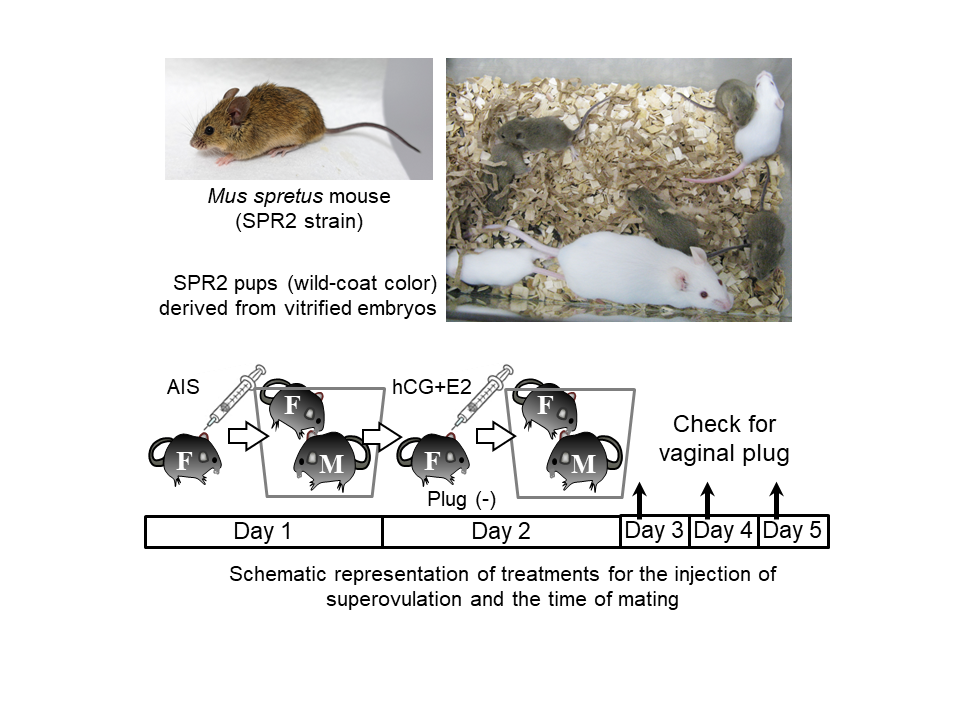| RIKEN BRC maintains a collection of over 50 wild-derived mouse strains that are available to researchers all over the world. In addition to a large collection of subspecies of Mus musculus that are the same species as laboratory mice, we also maintain a valuable collection of mice from different Mus species. These wild-derived mice from different species are an important research resource with even greater polymorphism than subspecies wild-derived mice. However, they have the disadvantage that the basic reproductive engineering techniques have not been developed yet. Therefore, we aimed to develop reproductive technologies for Mus spretus mice (SPR2 strain), one of the most widely used wild-derived mouse species. It was extremely difficult to obtain in vitro– and in vitro-fertilized eggs from SPR2 mice. We succeeded in obtaining an average of 16 in vivo-fertilized eggs per female by combining superovulation treatment based on anti-inhibin serum with estradiol treatment and natural mating. In addition, we have developed a vitrification preservation method for two-cell stage embryos using an ethylene glycol-based solution. Finally, we have devised embryo transfer technique; use of B6C3F1 ([C57BL/6×C3H]F1) females as recipients instead of the usual ICR mice achieved practical birth rates from frozen/thawed 2-cell embryos.
It is expected that these techniques will facilitate the maintenance, distribution, and research use of spretus mice, as well as the generation of their genetically modified lines.
|






